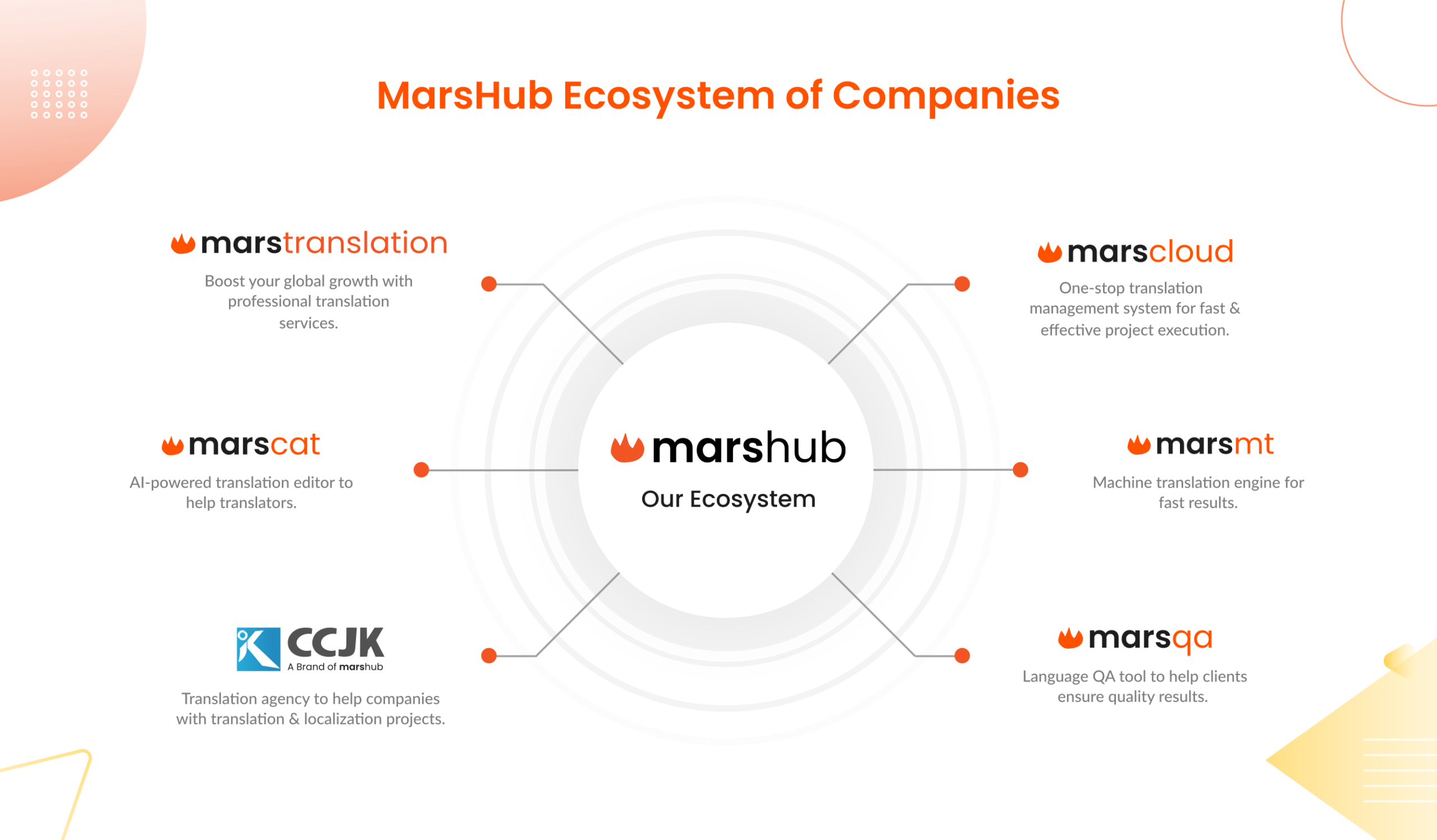Today, businesses are creating international influences by taking advantage of free markets, reduced tariffs, improved transport, and digitization. In the global landscape, opportunities are limitless for businesses that want to scale themselves internationally and thrive in foreign markets. The emerging globalization phenomenon encourages international trade with fewer restrictions on investing in foreign markets.
With the increasing trend of globalization among businesses, the need for professional brand localization and translations also emerges. Translation is the most dominating factor behind the smooth expansion of companies into foreign markets. With more effective communication and fewer linguistic restrictions, your overseas customers are highly likely to buy from you.
In this blog, we’ll analyze the influence of professional language translations on global expansions and how much the translation industry is contributing to globalization.
Globalization – Overview
Before discussing business translation and its significance in global business expansion, it is important to first understand what globalization really is. In general, globalization refers to a more connected and interdependence of the world’s economies, social structures, political systems, businesses, and populations. In business terms, globalization means the swift flow of manufactured goods, products, technology, jobs, people, and ideas around the globe, free from national borders and cultures. Globalization has encouraged more businesses to spread their roots globally and trade in international markets without any political, economic, or linguistic restrictions.
How Difficult Is Global Business Expansion?
Global expansion isn’t as difficult as it was a few decades ago, but still, not an easy cut to crack. Advanced technology, better policies, and an environment with free market trading have made it quite reasonable and convenient for businesses to tap into foreign markets, yet it is not as simple as it may sound. There are fewer trade restrictions, though, still, the competition is getting intense. It makes it harder for businesses to make themselves visible in a foreign landscape.
In globalization, it is more about how well you have researched a market, what translation methods you are using, which tools you are incorporating, etc. So, if you know your game and push all the right buttons at the right time, you can go about your business expansion quite smoothly.
What has Business Translation Got to Do with it?
In global business expansion, translations play a vital role in helping businesses clearly voice their brand vision to the target audiences. For many other reasons, translations are becoming essential for businesses that want to capture higher market shares and make their places in international markets.
1. Bridges The Linguistic Gaps
Whenever a business thinks about tapping into a new market, the first challenge that comes its way is communication with target customers, especially if they don’t speak your local language. Linguistic challenges are becoming more common for English brands who want to capture Asian countries where a large population can’t understand the English language. That’s why companies get a professional translation solution for enterprises to eliminate linguistic barriers and communicate with their overseas customers seamlessly.
For any business that wants to grasp maximum market share in a foreign market, they have to focus on effective brand communication. It is not possible if you are not marketing in the local language.
2. Enhances Brand Awareness
When you communicate in your native language with your overseas audiences, it makes them resonate with your brand. Creating brand awareness is a significant challenge faced by most companies when stepping into a new market. Language translations allow your business to be more visible and memorable for customers which promotes brand awareness. It is also estimated from much recent research that customers feel more comfortable buying from brands that speak their native languages. It shows how linguistic resonance develops trust in your target audiences and shapes their overall perception of your brand.
3. Resonates With Local Cultures
Translations also help you eradicate cultural differences and represent your brand in a way that fits societal and cultural norms. Business translations pay special attention to creating a culture-appropriate translation that seems native. When businesses overlook the cultural aspect of translations, they find it hard to capture more audience and engage with them. It happens because cultural references are vital when it comes to developing a deeper connection with your audience. When your business can connect with the local culture, it’ll make you appear more trustworthy.
4. Better Customer Experiences
Your customer experience is not just about the quality of your product or services. It also includes everything from packages, payment methods, website design, discounts, customer support, and information provided about the product. Through professional translations, you can significantly enhance the overall brand experience of your customers. For instance, when a customer visits your website, translated content makes it easier to comprehend your information, and they can easily navigate through the website. So, from the beginning, when a customer visits your website, you have already created a good customer experience. Now, there’s a high chance that your potential customers will make a buying decision.
5. Maximizes Global Marketing Results
Marketing is a critical and expensive business for any company. From market research to campaign design, everything has to be on point to make things work in your favor. Translating your global market campaigns into different languages would personalize your marketing efforts for every market. Translations make your content seem more appealing to the target audience. It leads to enhanced brand visibility and maximized results from marketing campaigns in foreign markets.
How to Approach Your Global Business Translations the Right Way?
For global companies, it is important to use the right methods, tools, and strategies to approach their business translations. Here are some valuable tips that companies can follow to effectively manage their business translations.
1. Know The Target Market
It all starts with knowing your target market and what your target customers are really looking for. Unless you have first-hand accurate market data, you won’t be able to figure out your business localization/translation plan. Is translation required for a market, or business can also go without it? It is an important question to ask yourself before randomly investing in translations for all regions. It mostly depends on your domain of business and your customer exposure to the English language. So, choosing the right markets and mindfully going about your linguistic strategies is the key to a successful business translation plan.
2. Understand Competition
In every market, the intensity of competition will be different. So, it’s important to know who you are competing with. You must know whether the competitors are local companies, or foreigners too. Moreover, how your competitors are translating their content is also an important thing to consider. Even if your competitors are not translating the content, doing translations will give them an advantage. You should monitor the translation strategies followed by competitors and find the gaps where you can do better to outshine their presence in the market.
3. Define Goals & Build an Action Plan
Once you have thoroughly analyzed your target markets, customers, and competitors, it’s time to create an action plan. Start by defining your business expansion goals and the results you want to achieve from your localization efforts. Make sure to write clear and realistic goals with deadlines and a strategic plan for execution. It also helps translators and other employees get an idea of where you are heading as a global company and what their accountability is in the grand scheme of things.
4. Use A Professional TMS Tool
The translation management system you are using to manage your translation operations also has a huge impact on your project’s speed, effectiveness, and efficiency. Especially, if you are managing a large-scope translation project, having a TMS tool can really make things easier, and more convenient and help you achieve agile translation project management. Moreover, translation project managers can use a cloud-based localization management system to efficiently manage their teams working at remote locations. You can customize your translation management experience as per your unique business needs.
5. Hire Native Linguists
One thing that companies must keep in mind is to get their translations done by professional native linguists. Bilinguals are not always a good choice for business translations, especially if they don’t have any cultural exposure. If you want to create culture-appropriate translations, go for native translators only. They have a good understanding of linguistic nuances that allow them to create more relevant translations without altering the original meaning of the brand message.
6. Consult with a Culture Expert at LSP
Culture has a huge role to play in language translations, so you must not overlook this part at any point in business translations. If you don’t have any experience working in a market, or you don’t know the culture, it is recommended to get advice from a professional culture consultant. Professional LSP agencies will help you create culture-friendly translation strategies, and navigate through a foreign market without offending its culture.
7. Implement Effective Translations Method
Whether you are getting your translations done by human translators only, or you are using a machine translation, the post-editing method is an important thing to consider. The method you use to translate your content will have a huge impact on its effectiveness, and speed. Traditional translation methods are unable to meet your current day translation needs, so you rather incorporate advanced technology in your translation management processes to enhance your team performance and manage deadlines more effectively. However, the translation methods used for online content translation will be different from technical business translations, so you have to evaluate everything carefully.
Real-Life Examples
Netflix
It is the world’s number one media streaming platform that has taken over the global content production industry. Smart localization and the use of local translations is also a dominant factor behind the company’s success. By providing dubbing and local language subtitles, Netflix has allowed content creators to tell their stories to global audiences eliminating linguistic barriers. Netflix pays special attention to dubbed content and subtitling based on the regional language preferences of local audiences. The company has always kept the language first, which is the main reason behind its increasing number of paid subscribers.
Airbnb
The implementation of advanced localization and translation strategies also proved very profitable for Airbnb. Through local language translation, Airbnb provides a more personalized experience to travelers looking for comfortable residential spaces. The translations also allowed the company to expand its reach to a large number of travelers and property owners. It becomes much easier for travelers to navigate through their website and find the required information when it is already translated into their local language.
Final Verdict!
Reading this article, we might have figured out pretty much the significance of business translations and how language plays a vital role in your global business expansion. Translating your content to local languages involves research, resources, expenses, efforts, and a lot of time. Global companies must invest in good tools, and build powerful strategies through proper research.



